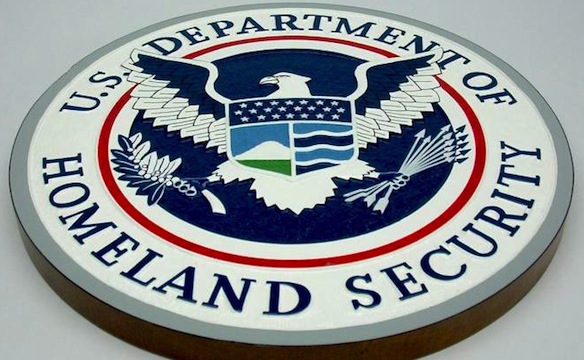St. Paul, Minnesota
 Federal indictment unsealed Tuesday charges 17 members of an international sex trafficking organization with transporting hundreds of women into the U.S. for prostitution, officials announced Wednesday.
Federal indictment unsealed Tuesday charges 17 members of an international sex trafficking organization with transporting hundreds of women into the U.S. for prostitution, officials announced Wednesday.
The charged defendants include 12 Thai nationals and five U.S. nationals. Eight of the 17 charged defendants were arrested yesterday at various locations in Minnesota, California, Illinois, Georgia and Hawaii. One charged defendant was previously arrested in Belgium and four defendants remains at large, officials said.
“The 17 people charged in this indictment ran a highly sophisticated sex trafficking scheme,” said U.S. Attorney Andrew M. Luger. “They promised women in Thailand a chance at the American dream, but instead exploited them, coerced them and forced them to live a nightmare. In short, the victims lived like modern day sex slaves. Today’s indictment is our ninth sex trafficking case since 2014, but it is the first that targets an entire organization. We will continue to work closely with our federal and local law enforcement partners to target and dismantle these types of far-reaching organizations.”
According to the indictment, which was returned under seal on Sept. 28, 2016, since at least 2009, the criminal organization has recruited hundreds of women, which the organization refers to as “flowers,” from Thailand to various locations across the United States, including Minneapolis, Los Angeles, Chicago, Atlanta, Phoenix, Washington D.C., Las Vegas, Houston, Dallas and Austin.
There they worked as prostitutes.
Once in the United States, victims were allegedly placed in houses of prostitution where they were forced to work long hours – often all day, every day.
The indictment alleges that the women were not allowed to leave the prostitution houses unless accompanied by a member of the criminal organization.
According to allegations in the indictment, which identifies several of the women as victims of human trafficking, the organization often recruited women from impoverished backgrounds who spoke little English.
Recruiters exploited these vulnerabilities during the recruitment process, promising the victims access to a better life in the United States in exchange for a debt of between $40,000 and $60,000, which the women were required to pay off through prostitution earnings.
“This week’s arrests reflect HSI’s global reach and ongoing efforts to dismantle criminal organizations that engage in human trafficking activities,” said Special Agent in Charge Alex Khu of the U.S. Immigration and Customs Enforcement’s Homeland Security Investigations St. Paul Division “HSI also remains firmly committed to rescuing victims and getting them help they desperately need to begin recovering from the depredations forced on them by these criminals.”
Advertising and Visas
As alleged in the indictment, before transporting the women to the U.S., the organization would typically arrange to have the women photographed for purposes of advertising them for sex on websites like backpage.com and eros.com.
The organization also encouraged the women to have breast implants in Thailand to make them “more appealing” to potential sex buyers in the United States and added the cost to the victims’ debt.
The organization engaged in widespread visa fraud to transport the women, the indictment alleges. Members of the criminal organization helped in obtaining fraudulent visas and travel documents for the women.
Also members of the conspiracy used personal information on the women and their families, which they gathered in the course of obtaining the fraudulent documents, to threaten victims who became non-compliant or tried to flee.
The defendants include:
- Sumalee Intarathong, 55, who was a boss in the scheme is currently incarcerated in Liege, Belgium, is charged with conspiracy to commit sex trafficking; sex trafficking by use of force, fraud and coercion; conspiracy to commit forced labor; conspiracy to commit transportation to engage in prostitution; transportation to engage in prostitution; conspiracy to engage in money laundering; conspiracy to use a communication facility to promote prostitution and conspiracy to commit visa fraud.
- Chabaprai Boonluea, 42, of Winder, Georgia, was a house boss in the operation and is charged with conspiracy to commit sex trafficking; sex trafficking by use of force, fraud and coercion; conspiracy to commit forced labor; conspiracy to commit transportation to engage in prostitution; transportation to engage in prostitution; conspiracy to engage in money laundering and conspiracy to use a communication facility to promote prostitution.
- Watcharin Luamseejun, 46, was a house boss in the scheme and is charged with conspiracy to commit sex trafficking; conspiracy to commit forced labor; conspiracy to commit transportation to engage in prostitution; conspiracy to engage in money laundering and conspiracy to use a communication facility to promote prostitution.
- Pantilla Rodpholka, 31, of Mount Prospect, Illinois, was a house boss in the operation and is charged with conspiracy to commit sex trafficking; conspiracy to commit forced labor; conspiracy to commit transportation to engage in prostitution; conspiracy to engage in money laundering and conspiracy to use a communication facility to promote prostitution.
- Noppawan Lerslurchachai, 35, of Lomita, California, was a facilitator in the scheme and is charged with conspiracy to commit sex trafficking; sex trafficking by use of force, fraud and coercion; conspiracy to commit forced labor; conspiracy to commit transportation to engage in prostitution; transportation to engage in prostitution; conspiracy to engage in money laundering and conspiracy to use a communication facility to promote prostitution.
- Khanong Intharathong, 44, of Dunwoody, Georgia, was a facilitator in the operation and is charged with conspiracy to commit sex trafficking; conspiracy to commit transportation to engage in prostitution; transportation to engage in prostitution; conspiracy to engage in money laundering and conspiracy to use a communication facility to promote prostitution.
- Andrew Flanigan, 51, of Winder, was a facilitator in the operation and is charged with conspiracy to commit sex trafficking; conspiracy to commit transportation to engage in prostitution; conspiracy to engage in money laundering and conspiracy to use a communication facility to promote prostitution.
- Patcharaporn Saengkham, 41, of Los Angeles, was a facilitator in the scheme and is charged with conspiracy to commit visa fraud
- Yadaporn Panngoen, 30, Los Angeles, was a facilitator in the scheme and is charged with conspiracy to commit visa fraud
- Supapon Sonprasit, 31, of St. Paul, was a facilitator in the operation and is charged with conspiracy to commit visa fraud
- Thi Vu, 48, of Atlanta, was a runner in the operation and is charged with conspiracy to commit sex trafficking; conspiracy to commit transportation to engage in prostitution; conspiracy to engage in money laundering and conspiracy to use a communication facility to promote prostitution.
- Todd Vassey, 54, of Lahanina, Hawaii, was a runner in the scheme and is charged with conspiracy to commit sex trafficking; conspiracy to commit transportation to engage in prostitution; transportation to engage in prostitution; conspiracy to engage in money laundering and conspiracy to use a communication facility to promote prostitution.
- John Zbracki, 59, of Lakeville, Minnesota, was a runner in the operation and is charged with conspiracy to commit sex trafficking; conspiracy to commit transportation to engage in prostitution; transportation to engage in prostitution; conspiracy to engage in money laundering and conspiracy to use a communication facility to promote prostitution.
According to the indictment, Intarathong served as a boss before her arrest in Belgium earlier this year. As alleged in the indictment, each woman identified as a victim of human trafficking was “owned” by Intarathong or another boss until the victim could repay the debt.
Other members of the criminal organization served as “house bosses,” who owned one or more of the houses of prostitution where the “flowers” were exploited for prostitution.
House bosses were responsible for day-to-day operations, including advertising the “flowers” for commercial sex, maintaining the houses of prostitution, scheduling appointments with sex buyers and ensuring that a significant portion of the prostitution proceeds were routed back to the trafficker/boss to pay down the debt.
The house boss kept the remainder of the prostitution proceeds, while the women were not permitted to retain any of their earnings, except for the occasional tip offered by a sex buyer.
As set forth in the indictment, other members of the criminal organization served as “facilitators,” who were primarily responsible for laundering the criminal proceeds of the organization and for directing the movement of victims within the United States, while other co-conspirators served as “runners.”
The runners were typically men who were paid, in part, by receiving access to sex acts with the women.
Runners accompanied the women anytime they were permitted to leave a house of prostitution to obtain personal items, travel or deposit money into accounts set up by the organization for repayment of the women’s debts. Runners were also sometimes asked to rent hotel rooms, apartments or other facilities for the organization.
The defendants are presumed innocent unless proven guilty.

